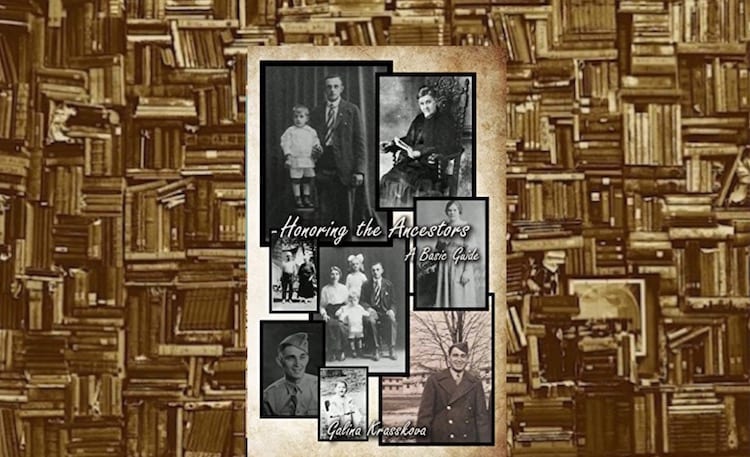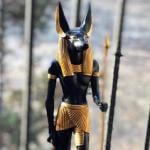The practice of ancestor veneration is simultaneously one of the most clear and confusing that one may find among religious people. The concept is simple: pay respect to the ones who made you possible. It’s also infinitely complex: blood is not necessarily the sole criterion of ancestry, some blood may be more relevant than other blood, and blood ties are not required to an ancestor. Add to that the relationships one had with ancestors known in life, sprinkle liberally with the daunting number of ancestors even whose names will never be discovered, and bake until it’s a hot mess.
I have been interested in ancestor veneration for a long time, and frankly I found the entire idea intimidating. That’s a lot of people to please, after all. It’s the unknown ancestors I find most challenging; who are these people? For many others, difficult relationships with the remembered dead can make developing an ancestor practice hard. We all have ancestors, and apparently most of us have issues with them.
Galina Krasskova dives into this morass with her 2014 book, Honoring the Ancestors: a Basic Guide. Intended as a primer for modern polytheists engaging in this work, the book includes exercises (such as for developing sensitivity to the dead), practices (like elevating an ancestor known to have been problematic or troubled in life), and straight-out education (including a discussion on who counts as ancestors for whom). Her partner Sannion contributes a divination system for communicating with one’s ancestors which I now use regularly.
Between the lines of this tome is a valuable lesson: our ancestors aren’t just the people we knew. They are more than the parents who gave us up for adoption or the grandparents who were abusive. They are more than the Christians who in life were offended by the religion, sexual orientation, marriage, or other circumstances which can cause people to feel estranged from living family. Our ancestors stretch back, generation before generation, and it’s okay to ignore or avoid the ones we don’t feel warm and fuzzy about and focus on those whose lives, faces, and even names might be completely hidden.
That isn’t to say those unnamed ancestors might not be problematic; Krasskova notes that any who willingly abandoned their traditions in favor of Christianity probably have some explaining to do. However, the bulk of ancestors lived and died long before even records were kept, and problems with one’s most recently forebears should never be a barrier to ancestor veneration.
Quibbles: I wish the chapters had titles, which would make referring back to specific sections easier.
Conclusion: this book is both reference and guide, collecting wisdom about the value of honoring one’s ancestors along with practical tips about how to begin and build a practice. Pagans of all stripes should give serious thought to including ancestors in their practices, and this is a very helpful book for making that happen.
Title: Honoring the Ancestors
Author: Galina Krasskova
Publisher: Sannegetall Press
ISBN: 978-1-50-090636-8
Interested in having your book given an unbiased review? Let me know!


















